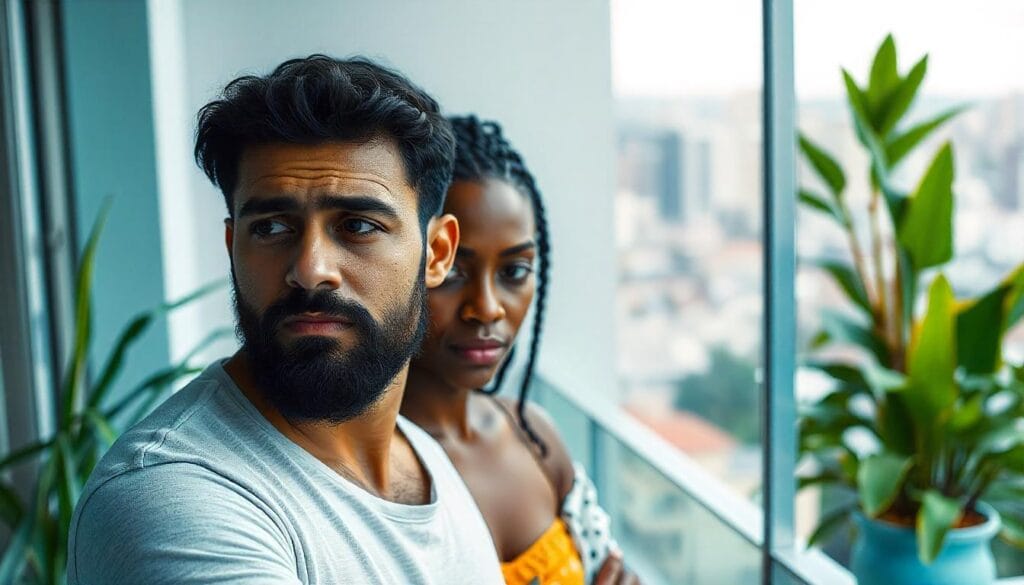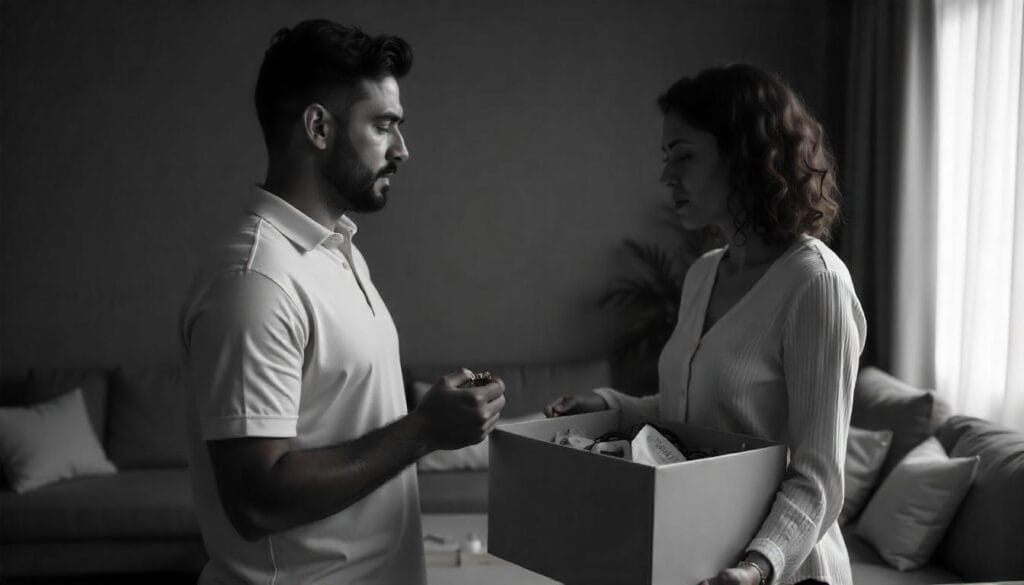The Emergence of a New Heritage
The growth of social media and the popularity of digital influencers have brought a new type of “asset” that is not always easy to divide: social media accounts that are worth money. In divorce cases, these accounts, which can have millions of followers and represent a significant source of income, start to cause conflicts over who gets to keep them.
A recent example is the case of Kat and Mike Stickler, influencers who, when they split up, had to share their followers: Kat stayed with TikTok, which paid off in her solo career, while Mike stayed with a YouTube channel, but ended up changing careers.
In Brazil, there are still no specific laws on how to divide these digital assets in divorces. Generally, judges decide on the basis of traditional property sharing laws.
But since these digital assets are different from material goods, questions arise about how to value them and who has the right to keep them. Below, we will explore how the division of assets works in Brazil, how these regimes can impact influencers and the role of marriage agreements, or ante-nuptial pacts, in this scenario.

Social Networks as Heritage: the Stickler Case
The case of influencers Kat and Mike Stickler helps us understand a new problem: dividing social media accounts and followers in a divorce. The accounts, with millions of followers, are a source of income and represent a kind of online “fame”. In the end, Kat kept TikTok and pursued her career as an influencer, while Mike kept his YouTube channel, which was already in decline, and pursued a new career.
Because of this, some influencers have prepared for these scenarios. Financial influencer Vivian Tu, for example, decided to include her accounts in a marriage agreement, or pacto antenupcial, to avoid disputes if she ever separates. This type of agreement helps define, before the wedding, what will be done with digital accounts in the event of a divorce.
Marriage Regimes and the Protection of Digital Assets
In Brazil, couples can choose between four types of matrimonial property regimes, which influence how assets will be divided in the event of separation. Each regime has its own characteristics, and this also applies to digital assets such as social media accounts.

1. Partial Communion of Property
This is the most common regime. In it, the assets acquired during the marriage are divided equally, while the assets that each person had before the marriage remain their individual property. For social media accounts, this raises some questions.
If the account was created during the wedding and has been successful, some argue that it should be split, but how do you do that? Assessing the value of an account can be difficult, as engagement and the number of followers can vary greatly.
2. Universal Communion of Property
Here, all assets – acquired before or during the marriage – are divided equally in the event of separation. In this case, everything is shared, including digital accounts.
But since many influencers are individual owners of their accounts and manage them alone, dividing up these accounts equally can be complicated. In some cases, it may not be fair, as those who have dedicated time and effort to gaining followers may lose control over their own audience.

3. Total Separation of Assets
In the total separation regime, each spouse keeps their individual assets, both those they owned before and those acquired during the marriage. This can be the best option for influencers or professionals who use their accounts for work, as it avoids the forced division of social networks. This way, everyone preserves their digital assets and control over their accounts, without having to share them.
4. Final Participation in Proceeds
Under this regime, each spouse keeps their own property during the marriage, but in the event of separation, the value of what has been acquired is divided.
This is an interesting option for those who want to protect the ownership of digital assets, as it allows the value that each person brought to the marriage or built up during it to be preserved. In the case of influencers, this is a way of ensuring that the value of followers and accounts is recognized, without losing exclusive ownership.
The importance of the prenuptial agreement for digital assets
A practical way to protect digital accounts in a marriage is the prenuptial agreement. This is a document signed before the wedding in which the couple defines how assets will be divided, including digital accounts.
In the case of influencers, the prenuptial agreement makes it possible to detail exactly what will be done with the social media accounts, who gets them, who has the right to use the content and even the rights to the image. In this way, it is possible to avoid conflicts in the future, preserving each other’s digital assets.
In Brazil, this practice is not yet so common, but as digital accounts gain importance and value, prenuptial agreements are becoming more and more useful. This gives security to the couple, who know exactly how their assets will be dealt with in the event of a divorce, and avoids lengthy disputes in the courts.

How Brazilian family law views digital assets
There are still no specific laws for digital assets in family law in Brazil. In separation cases, judges usually use the principles of civil law, which generates different decisions depending on each case.
This lack of specific regulation can create difficulties when it comes to dividing up assets such as social media accounts. After all, these assets are difficult to assess, as their value depends on factors such as the number of followers and engagement, which can change rapidly.
Faced with this situation, lawyers and experts suggest that Brazil develop specific legislation for these digital assets. As is the case in other countries, this legislation could include rules to define the value of accounts and protect the use of images and digital content, which would bring more security and clarity to influencers and their digital assets.
The Future of Digital Assets in Family Law
With the increase in divorce cases involving social media accounts, many lawyers and judges believe that the creation of specific rules for digital assets is only a matter of time.
In the United States, for example, it is already common for prenuptial agreements to include social networks and monetizable accounts, to avoid problems at the time of divorce. Clear legislation for these cases in Brazil would make court decisions easier and bring more security to couples.
For influencers and professionals working with social media, understanding the importance of estate planning is essential. Protecting your digital assets from the outset, whether through your chosen marriage regime or a prenuptial agreement, can be the best way to guarantee the security of your accounts and preserve the value and audience you have earned.
A New Challenge for Family Law
The division of social media accounts in divorce cases is a new challenge for family law. With the growth of social media, these accounts have become a source of income and an extension of the personal and professional identity of many influencers, making them important in any division of assets.
In Brazil, while specific legislation is still being developed, influencers and digital professionals can protect themselves with prenuptial agreements and suitable marriage regimes.
By understanding the options for property regimes and the role of the prenuptial agreement, these professionals can ensure that their work and the value of their accounts are secure in any situation, making the division of digital assets simpler and fairer for everyone involved.











